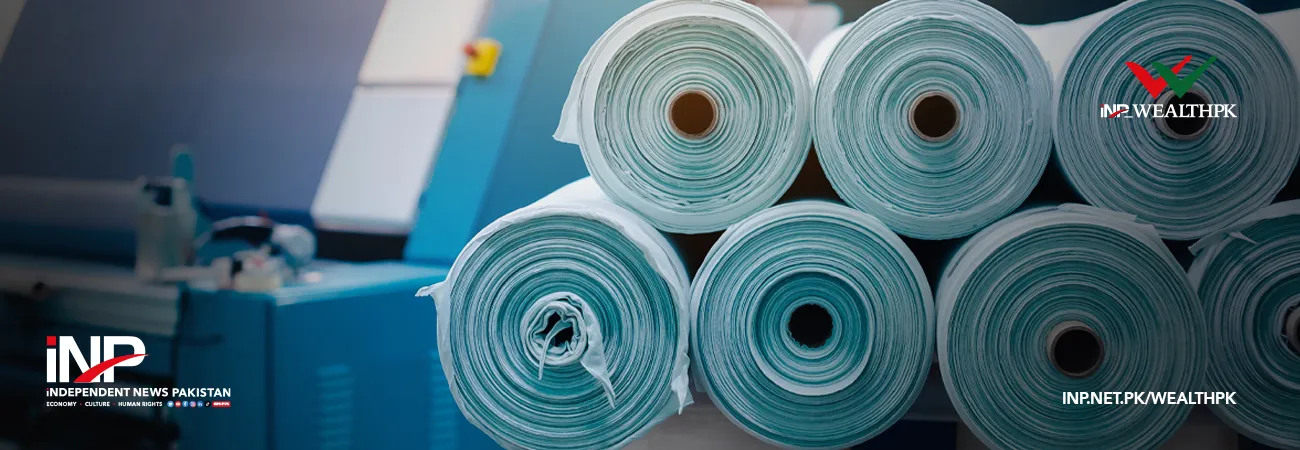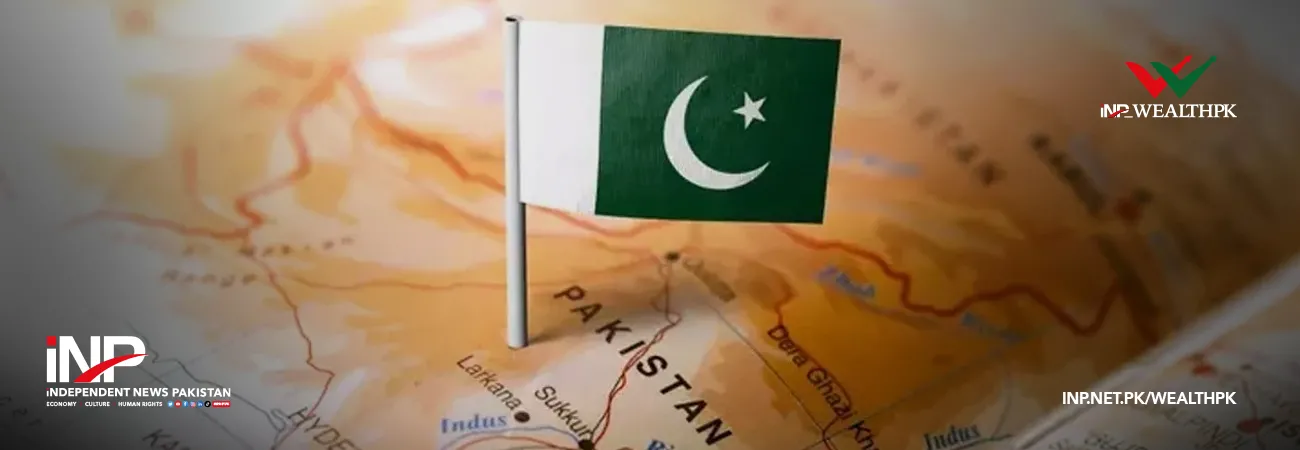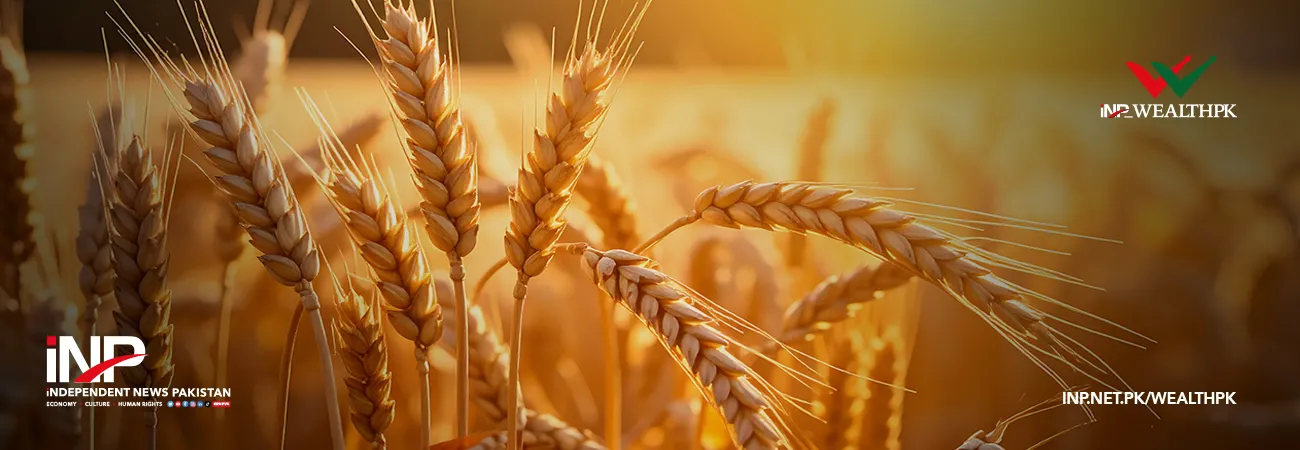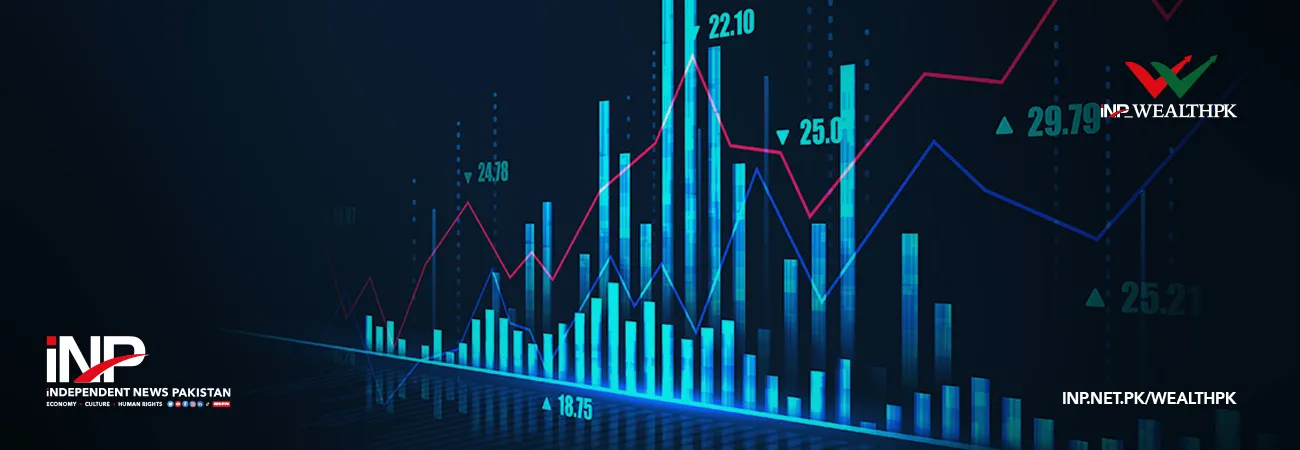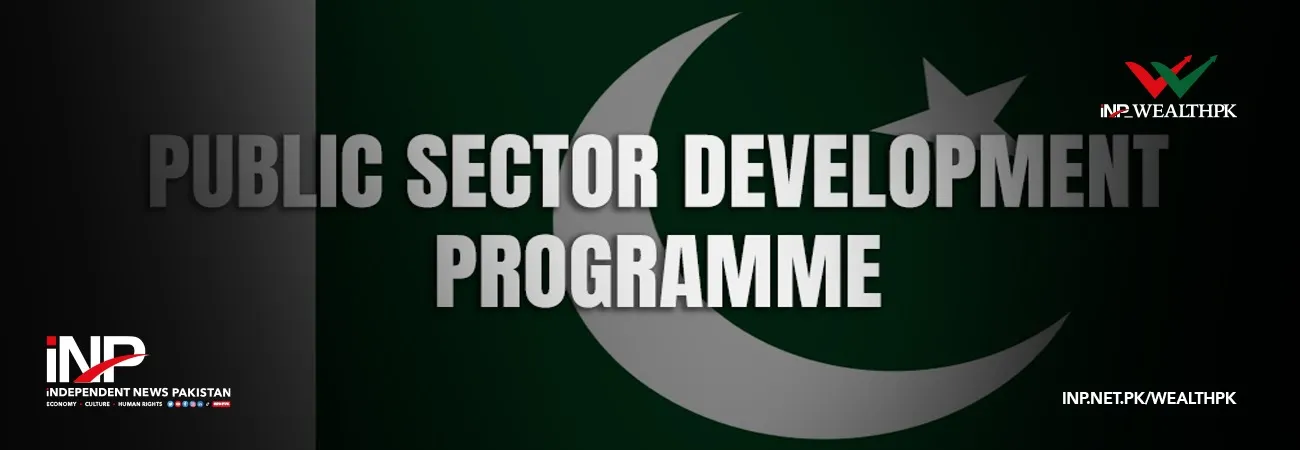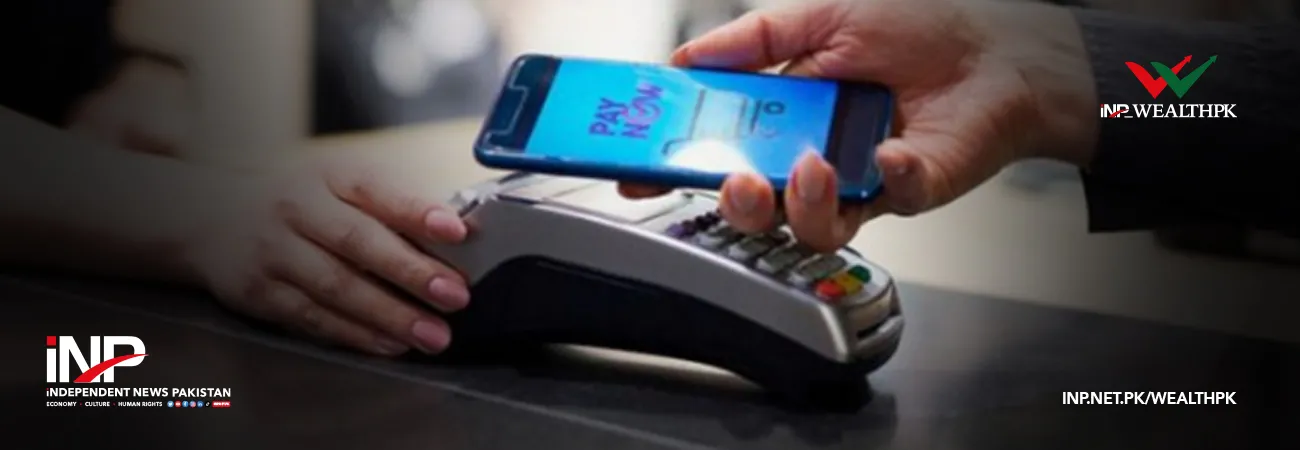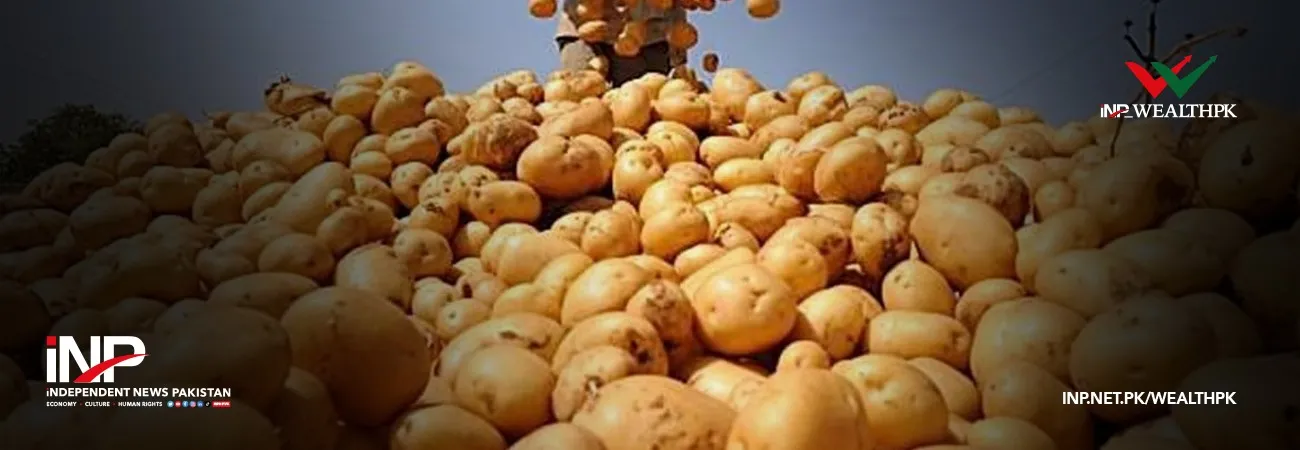INP-WealthPk
Ayesha Mudassar
Yousaf Weaving Mills Limited (YOUW) posted a loss-after-tax (LAT) of Rs29.5 million during the half year ending December 31, 2023 compared with a profit of Rs2.8 million in the corresponding period of last year, reports WealthPK. As per the company’s half-yearly report, YOUW reported a loss-before-tax (LBT) of Rs27.3 million during 1HFY24 as compared to a profit-before-tax of Rs10.7 million in 1HFY23. Likewise, the gross profit plunged by 89% during the period under review.
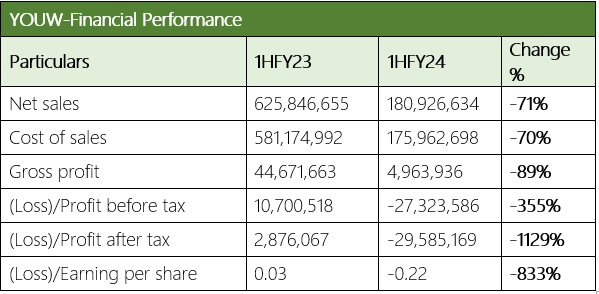
The net sales plunged by 71% from the preceding year. Furthermore, the cost of sales also declined by 70% during the 1HFY24. The textile composite posted a loss per share of Rs0.22 for the six months ending December 31, 2023. The company's management diligently implemented cost-saving measures to mitigate losses. However, certain factors, including exorbitant input prices, escalating energy charges, currency exchange rate fluctuations, and uncertain political and economic conditions, predominantly impacted the company's performance.
Performance over the last four years (2020-2023)
During the period under consideration, YOUW's top line and bottom line plunged once in 2023. Similarly, the gross and pre-tax profit margins of the company grew in 2020, and 2021, and then tumbled in 2023. Historical analysis of YOUW’s sales reveals an increasing trend till 2022. The company posted its highest four-year sales in FY22 at Rs1.2 billion. However, the combined impact of higher interest rates and unprecedented inflation led to a sharp increase in production costs, resulting in a 31% decline in net sales during 2023. Concerning the net profit, the company’s historical performance fluctuated over the years. In a span of four years (2020-2023), the firm achieved the highest profit of Rs22.3 million in FY22. Owing to the uncertain political and economic conditions, the company incurred a loss of Rs66.4 million in fiscal year 2023. Besides, the company’s gross loss and loss-before-tax (LBT) showed considerable fluctuations during the period.
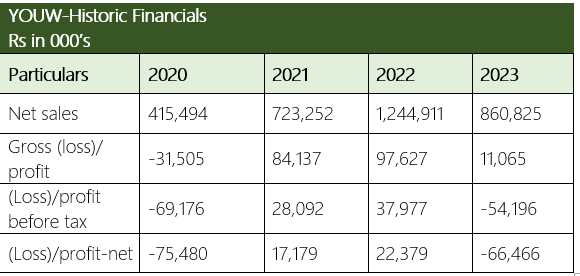
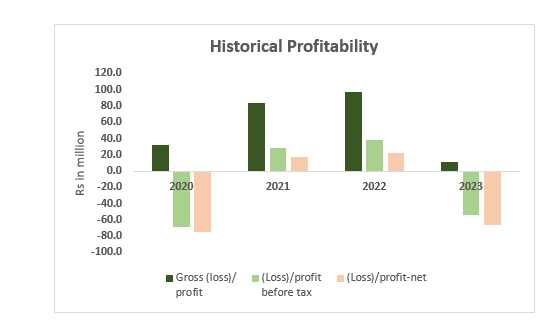
The combination of strict monetary measures, discriminatory tax policies, and the prevailing economic challenges, including high inflation and currency devaluation, collectively dented the company’s profitability in FY23.
Ratio analysis
The historical ratios provide valuable insights into the financial performance of the company and growth patterns over the years. YOUW showcased fluctuations in the gross profit margin, reaching 1.29% in FY23, down from 7.8% in FY22, and 11.63% in 2021. This steady downward trend reflects the company’s inability to implement effective cost management and pricing strategies, contributing to a lower bottom line.
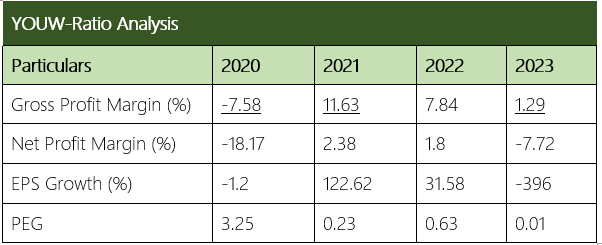
The net profit margin also experienced a negative growth, declining to negative 7.72% in FY23 compared to 1.8% in FY22, and 2.38% in FY21. The downward trajectory in the net profit margin demonstrates YOUW’s inability to manage expenses and maximize profits. Regarding earnings per share (EPS), Yousaf Weaving Mills reported a significant decline of 396% in FY23. The company witnessed a 31.58% growth in 2022 and an outstanding 122.62% surge in FY21. During the years under consideration, the price/earnings to growth (PEG) ratio was notably low at 0.01 in FY23. The PEG ratio assesses the relationship between a company’s price/earnings (P/E) ratio and its earnings growth rate. A PEG ratio below suggests that the stock may be undervalued relative to its earnings growth potential.
Company description
Yousaf Weaving Mills Limited was incorporated on January 17, 1988 as a public limited company in Pakistan under the Companies Ordinance of 1984 (now the Companies Act, 2017). The company is engaged in the business of textile weaving, spinning, and sale of processed fabric.
General market review and future prospects
Global economic uncertainty and rising production costs have eroded the global competitiveness of Pakistan’s textile industry. Additionally, frequent energy shortages and power outages have hindered the textile industry’s ability to maintain consistent production schedules, affecting delivery timelines and eroding the customer trust. Amidst a continuously changing economic landscape, the textile composite is determined to work closely with the relevant departments to overcome these challenges in order to strengthen its presence and explore new growth opportunities.
Credit: INP-WealthPk



